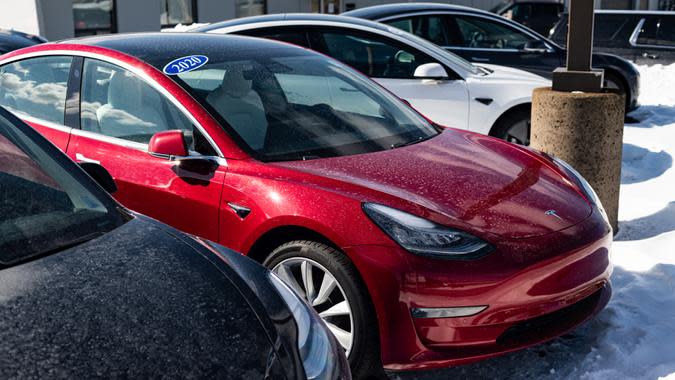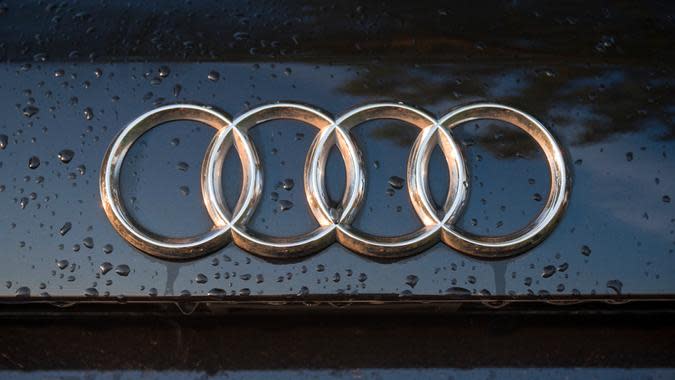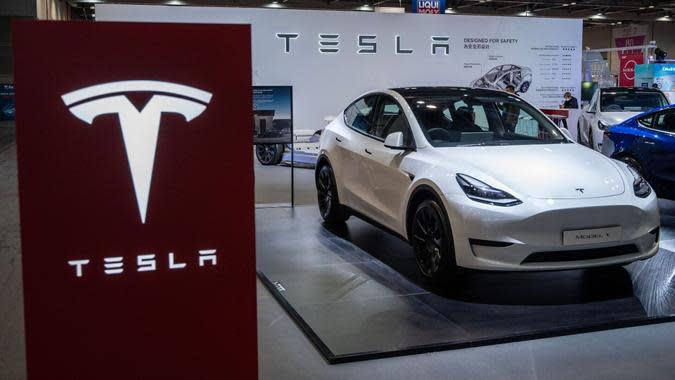Watch Out for These 3 Car Brands with Hidden One-Time Fees

Despite a significant decrease since its record-high peak, Kelley Blue Book (KBB) says the average new car price is still over $47,000. With that kind of average MSRP combined with still-high interest rates, the last thing buyers want is to drive home in a new vehicle only to realize they got taken for fees they didn’t bargain for or that they’ll have to pay more to unlock their car’s full functionality.
Learn How: How To Get $340 Per Year in Cash Back on Gas and Other Things You Already Buy
Find Out: 6 Cars That Seem Expensive but Rarely Need Repairs
Even so, that’s precisely the position some automakers put their customers in. If you’re shopping for a new car and considering one of the following brands, watch out for hidden fees. Actually, they’re usually not really hidden — but they are often disguised as subscriptions or upgrades.

Automakers Can’t Hide Fees, but They Can Make Them Confusing
In the auto industry, manufacturers can’t legally hide fees — but they can strategically garble them while still adhering to federal regulations.
“Car brands or OEMs do not normally have ‘hidden’ fees, as they are legally required to disclose fees on the window sticker or Monroney label,” said Gretchen Seidel, an automotive expert and keynote speaker with 30 years of industry experience.
Monroney labels are white stickers that U.S. law requires manufacturers to affix to the side windows of all new cars as part of the Automobile Information Disclosure Act of 1958. The label chronicles vehicle specs and costs like MSRP, warranty information, standard equipment, fuel economy and the price of options.
“But the information on these labels can be confusing,” Seidel said.
Learn More: Avoid These 7 Cars That Will Only Last You Half as Long as the Average Vehicle
Discover More: 6 Hybrid Vehicles To Stay Away From Buying

Dealers Slip in Their Own Fees, Too
The confusion doesn’t stop with manufacturer costs. Dealers often tack on their own fees, too.
“In addition to reading the Monroney label, customers should read the dealership’s addendum on the vehicle,” Seidel said. “It could contain additional fees not explicitly stated on the manufacturer’s label from the dealership.”
Here, too, don’t expect them to make it easy for you.
“The FTC governs fee disclosure for dealerships, and it can be challenging to understand if you aren’t familiar with what you may be reading on the addendum next to the window sticker,” Seidel said. “With that, consumers must thoroughly review all documentation, including the manufacturer’s window sticker and dealership addendum, to understand the full scope of any fees before making a car purchase.”
With that in mind, here’s a look at some sneaky fees that automakers bury in the fine print and that you might not notice until you’ve already driven home in your new car.
Read Next: 7 Best Luxury Cars Worth Every Penny

Mercedes-Benz
If you’re in the market for a fully electric Mercedes-Benz EQE or EQS, you might think that the EV’s advertised maximum acceleration is included in the cost — especially since the EQE starts in the $70,000s and the EQS starts in the six figures.
But the German automaker requires buyers to pay more to enjoy their new car’s full potential.
The company’s Performance Acceleration On-Demand Upgrade charges EQE owners $60 per month, $600 per year or $1,950 over the vehicle’s life to achieve roughly one second faster 0-60 acceleration. For EQS owners, it’s $90 per month, $900 per year or $2,950 for the life of the vehicle — and the more expensive package doesn’t even buy a whole extra second.

Audi
The Audi connect Function on Demand program lets owners of select vehicles subscribe to functionality that they might have assumed was factored into the cost of the car, including:
Light Function Package: Dynamic light features adapt as you turn, corner and back up, with headlights that follow your steering wheel, providing lateral illumination while maneuvering. The cost is $260 for a lifetime purchase.
Enhanced Navigation Package: Unlocks access to the Audi connect PRIME system and the immersive experience of the Audi virtual cockpit. The cost is $80 per month or $800 per year.
Navigation with Audi connect PLUS: Combines remote services with Audi connect CARE, the navigation and infotainment services of Audi connect PRIME, and the high-speed Wi-Fi of Audi connect PLUS. The cost is $85 per month or $850 per year.

Tesla
Tesla describes its Autopilot feature as “an advanced driver assistance system that assists your car with steering, accelerating and braking for other vehicles and pedestrians within its lane. It assists with the most burdensome parts of driving and works alongside features like emergency braking, collision warning and blind-spot monitoring.”
Tesla’s Full Self-Driving Capability subscriptions cost $99 per month for Enhanced Autopilot to FSD capability or $199 per month for Basic Autopilot to FSD capability.

Customer Pushback Convinced Some Automakers To Rethink Their Fees
A few brands had been charging sneaky fees until their customers rebelled once the word got out — and they were quick to change their minds in the face of a revolt.
GM
For model year 2023, GM required anyone who bought any Buick or GMC models to pay for an OnStar Premium subscription, which added $900 to $1,500 to the cost of most vehicles. According to Kelley Blue Book, customers were having none of it, and GM backed off, making OnStar optional once again for model year 2024 with a free three-year subscription as a perk for some models.
BMW
In 2023, BMW dropped plans to charge its customers a monthly subscription fee for the privilege of getting their heated seats to generate heat. According to The Verge, it turns out that customers who had already paid for heated seats were not eager to pay $18 per month, $180 per year, $300 for three years or $415 for unlimited access to unlock the paywall that prevented them from warming up.
More From GOBankingRates
This article originally appeared on GOBankingRates.com: Watch Out for These 3 Car Brands with Hidden One-Time Fees
